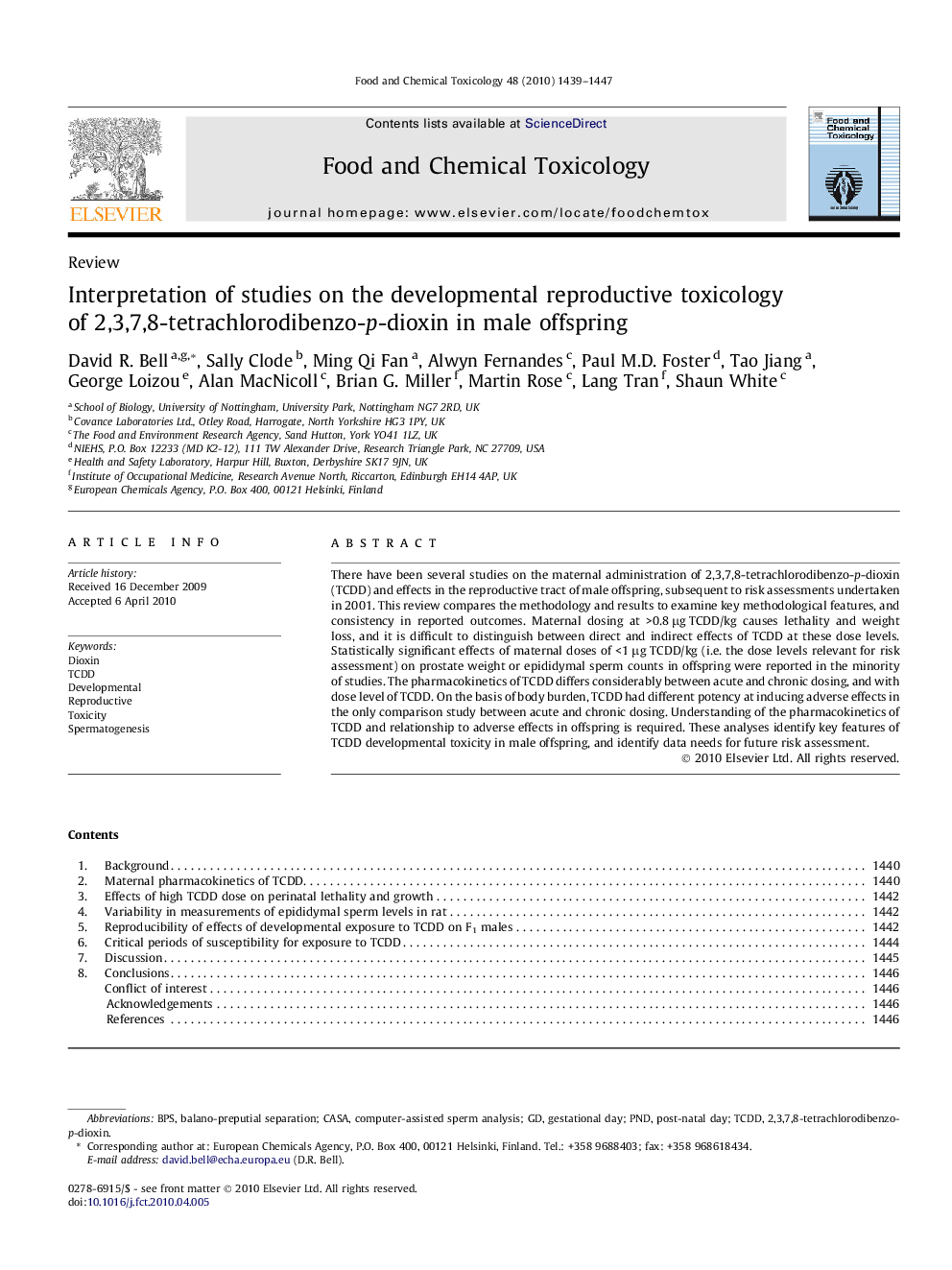| Article ID | Journal | Published Year | Pages | File Type |
|---|---|---|---|---|
| 5854161 | Food and Chemical Toxicology | 2010 | 9 Pages |
There have been several studies on the maternal administration of 2,3,7,8-tetrachlorodibenzo-p-dioxin (TCDD) and effects in the reproductive tract of male offspring, subsequent to risk assessments undertaken in 2001. This review compares the methodology and results to examine key methodological features, and consistency in reported outcomes. Maternal dosing at >0.8 μg TCDD/kg causes lethality and weight loss, and it is difficult to distinguish between direct and indirect effects of TCDD at these dose levels. Statistically significant effects of maternal doses of <1 μg TCDD/kg (i.e. the dose levels relevant for risk assessment) on prostate weight or epididymal sperm counts in offspring were reported in the minority of studies. The pharmacokinetics of TCDD differs considerably between acute and chronic dosing, and with dose level of TCDD. On the basis of body burden, TCDD had different potency at inducing adverse effects in the only comparison study between acute and chronic dosing. Understanding of the pharmacokinetics of TCDD and relationship to adverse effects in offspring is required. These analyses identify key features of TCDD developmental toxicity in male offspring, and identify data needs for future risk assessment.
